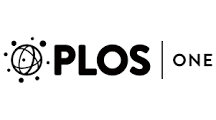Ver ítem
- xmlui.general.dspace_homeCentros Regionales y EEAsCentro Regional Patagonia NorteEEA BarilocheArtículos científicosxmlui.ArtifactBrowser.ItemViewer.trail
- Inicio
- Centros Regionales y EEAs
- Centro Regional Patagonia Norte
- EEA Bariloche
- Artículos científicos
- Ver ítem
Capturing farm diversity with hypothesisbased typologies: An innovative methodological framework for farming system typology development
Resumen
Creating typologies is a way to summarize the large heterogeneity of smallholder farming systems into a few farm types. Various methods exist, commonly using statistical analysis, to create these typologies. We demonstrate that the methodological decisions on data collection, variable selection, data-reduction and clustering techniques can bear a large impact on the typology results. We illustrate the effects of analysing the diversity from different
[ver mas...]
Creating typologies is a way to summarize the large heterogeneity of smallholder farming systems into a few farm types. Various methods exist, commonly using statistical analysis, to create these typologies. We demonstrate that the methodological decisions on data collection, variable selection, data-reduction and clustering techniques can bear a large impact on the typology results. We illustrate the effects of analysing the diversity from different angles, using different typology objectives and different hypotheses, on typology creation by using an example from Zambia's Eastern Province. Five separate typologies were created with principal component analysis (PCA) and hierarchical clustering analysis (HCA), based on three different expert-informed hypotheses. The greatest overlap between typologies was observed for the larger, wealthier farm types but for the remainder of the farms there
were no clear overlaps between typologies. Based on these results, we argue that the typology development should be guided by a hypothesis on the local agriculture features and the drivers and mechanisms of differentiation among farming systems, such as biophysical and socio-economic conditions. That hypothesis is based both on the typology objective and on prior expert knowledge and theories of the farm diversity in the study area. We present a methodological framework that aims to integrate participatory and statistical methods for hypothesis-based typology construction. This is an iterative process whereby the results of the statistical analysis are compared with the reality of the target population as hypothesized by the local experts. Using a well-defined hypothesis and the presented methodological framework, which consolidates the hypothesis through local expert knowledge for the creation
of typologies, warrants development of less subjective and more contextualized quantitative farm typologies.
[Cerrar]

Autor
Alvarez, Stephanie;
Timler, Carl J.;
Michalscheck, Mirja;
Paas, Wim;
Descheemaeker, Katrien;
Tittonell, Pablo Adrian;
Andersson, Jens A.;
Groot, Jeroen C.J.;
Fuente
Plos One 13 (5) : sp. (Mayo 2018)
Fecha
2018-05-15
Editorial
Plos ONE
ISSN
0748-7711
Formato
pdf
Tipo de documento
artículo
Palabras Claves
Derechos de acceso
Abierto
 Excepto donde se diga explicitamente, este item se publica bajo la siguiente descripción: Creative Commons Attribution-NonCommercial-ShareAlike 2.5 Unported (CC BY-NC-SA 2.5)
Excepto donde se diga explicitamente, este item se publica bajo la siguiente descripción: Creative Commons Attribution-NonCommercial-ShareAlike 2.5 Unported (CC BY-NC-SA 2.5)


